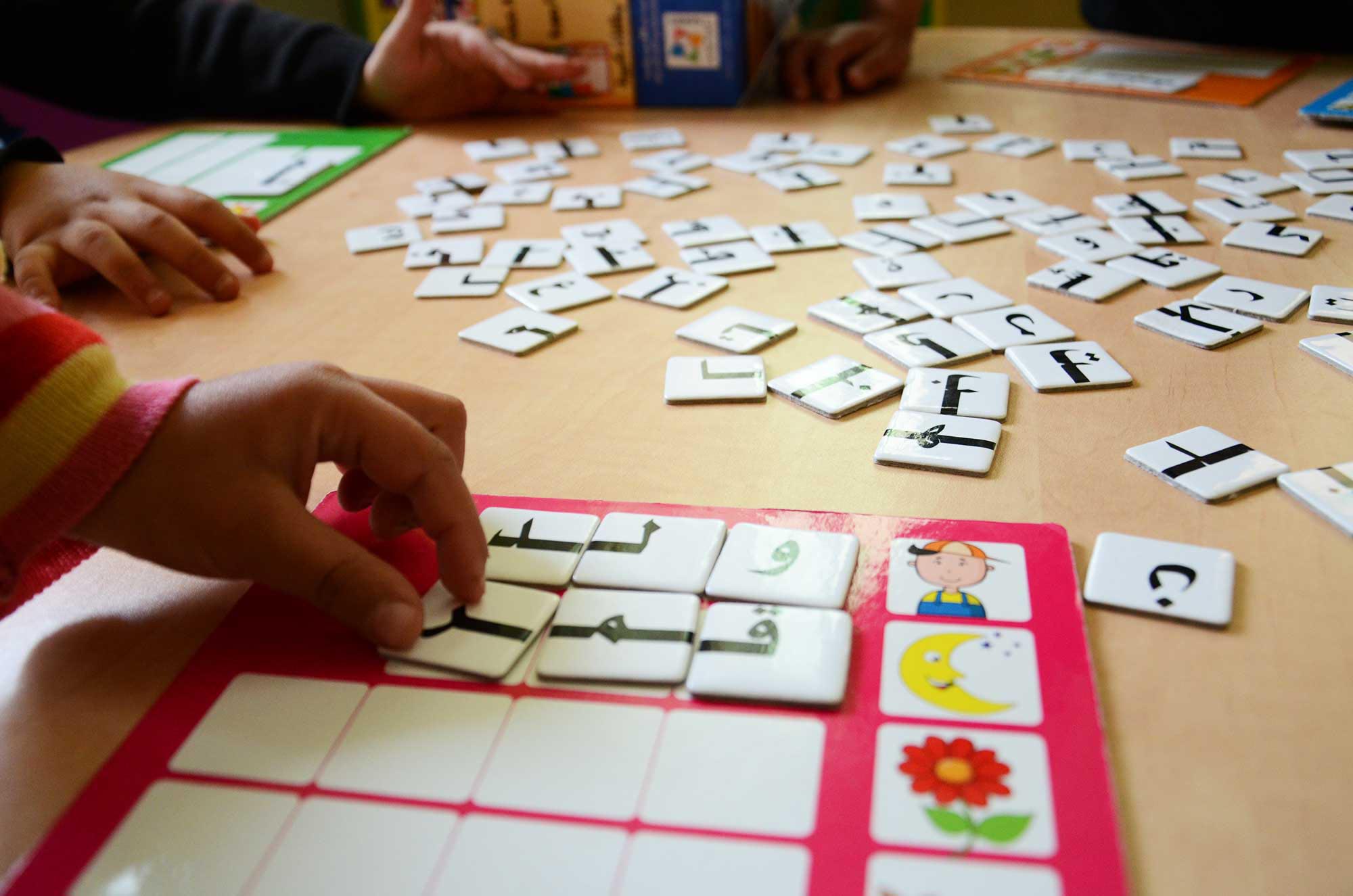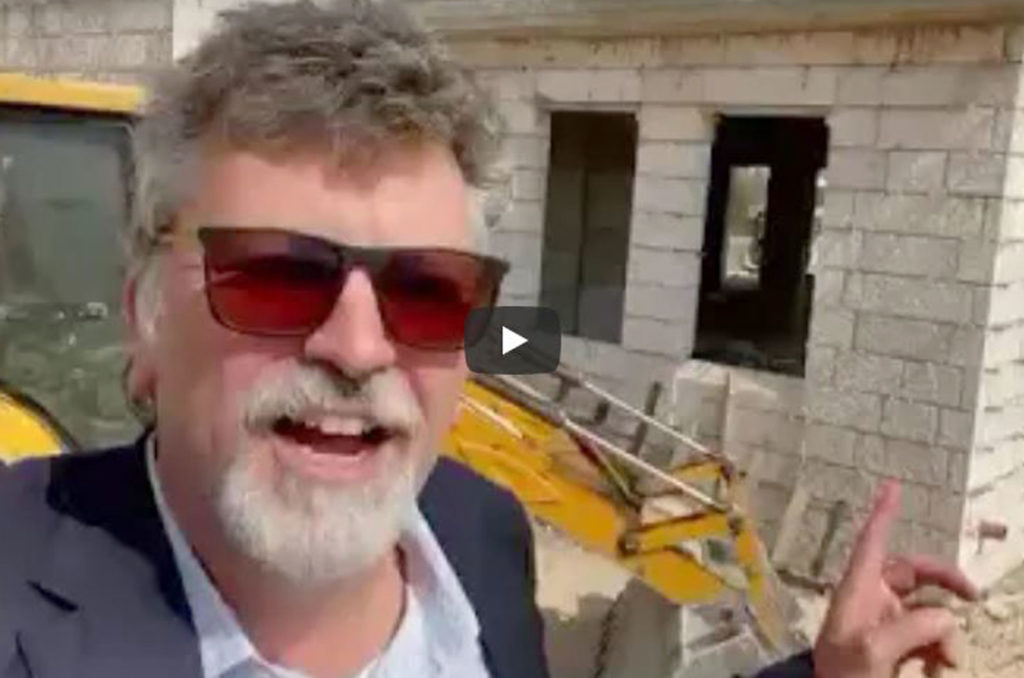Mar, 2015
Seven years after getting her bachelor’s in primary education, 32-year-old Wijdan Moqdi got her first chance to work at a governmental school.
To her dismay, she was appointed as a preschool classroom teacher. Wijdan had no choice but to accept the position in the village of Masha in Salfit, West Bank.
“I convinced myself I only had to get by for a while until I would be reappointed as a primary school teacher where I believed I belonged,” explains Wijdan.
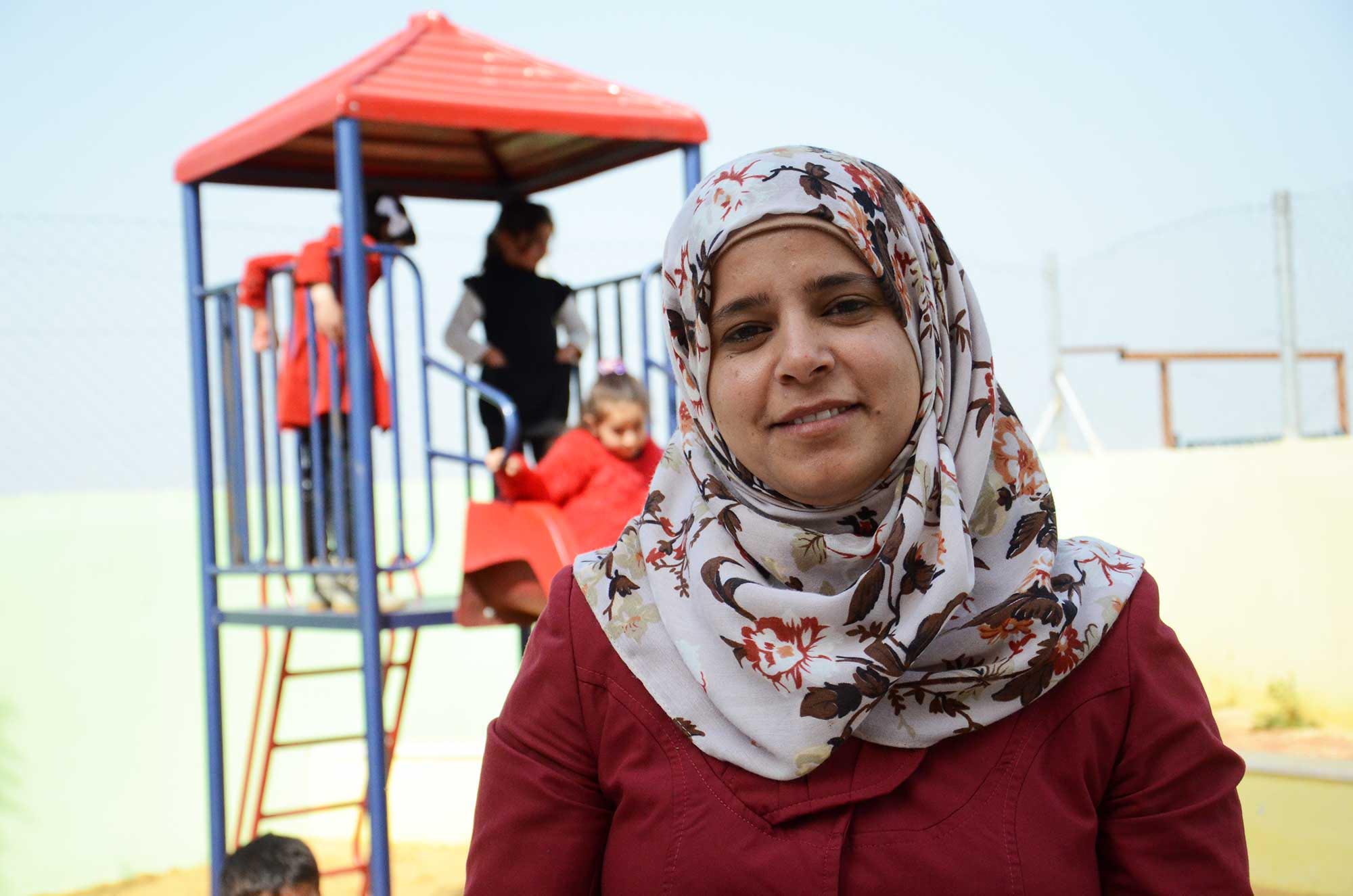
Teacher Training Takes a Surprising Turn
Her attitude changed dramatically a year later when Anera organized a 30-day in-service teacher training program and a renovation and rehabilitation project as part of its Early Childhood Development (ECD) program. Anera’s intervention was made possible with a generous donation by Dubai Cares.
Anera restored the preschool and added a new playground, furniture, child-appropriate games, toys and books. Masha has a special significance as one of the first preschool classrooms in a government school, established through Anera’s ECD program. Anera has worked in tandem with the Ministry of Education since 2014 to rehabilitate two government preschools in the southern West Bank and three in the north, all with funding from Dubai Cares.
The program in Salfit provided 23 teachers from three locations in Qalqilia and seven in Salfit with 30 sessions on early childhood development and core curriculum topics. It was the fifth training held since the ECD program was established in 2010 in the West Bank.
Wijdan recalls the first time she met Sulaima Abu El Haj, ECD coordinator and trainer: “I burst into tears. That’s how frustrated I was. I always felt like I was under constant pressure to develop myself as a preschool teacher but never could figure out how.”
Although Wijdan had a natural love for children, the first year as a kindergarten classroom teacher was very difficult for her, she says, especially because she had mainly relied on her university background to get by.
“Soon after Anera stepped in, I discovered what I had learned at university was entirely theoretical and almost completely inapplicable to preschool,” explains Wijdan. “I was running the class improperly and that was the biggest hurdle in my path as a preschool teacher. The frustration I felt was predictable,” she sighs, “I lacked the fundamentals!”

I burst into tears. That’s how frustrated I was. I always felt like I was under constant pressure to develop myself as a preschool teacher but never could figure out how.
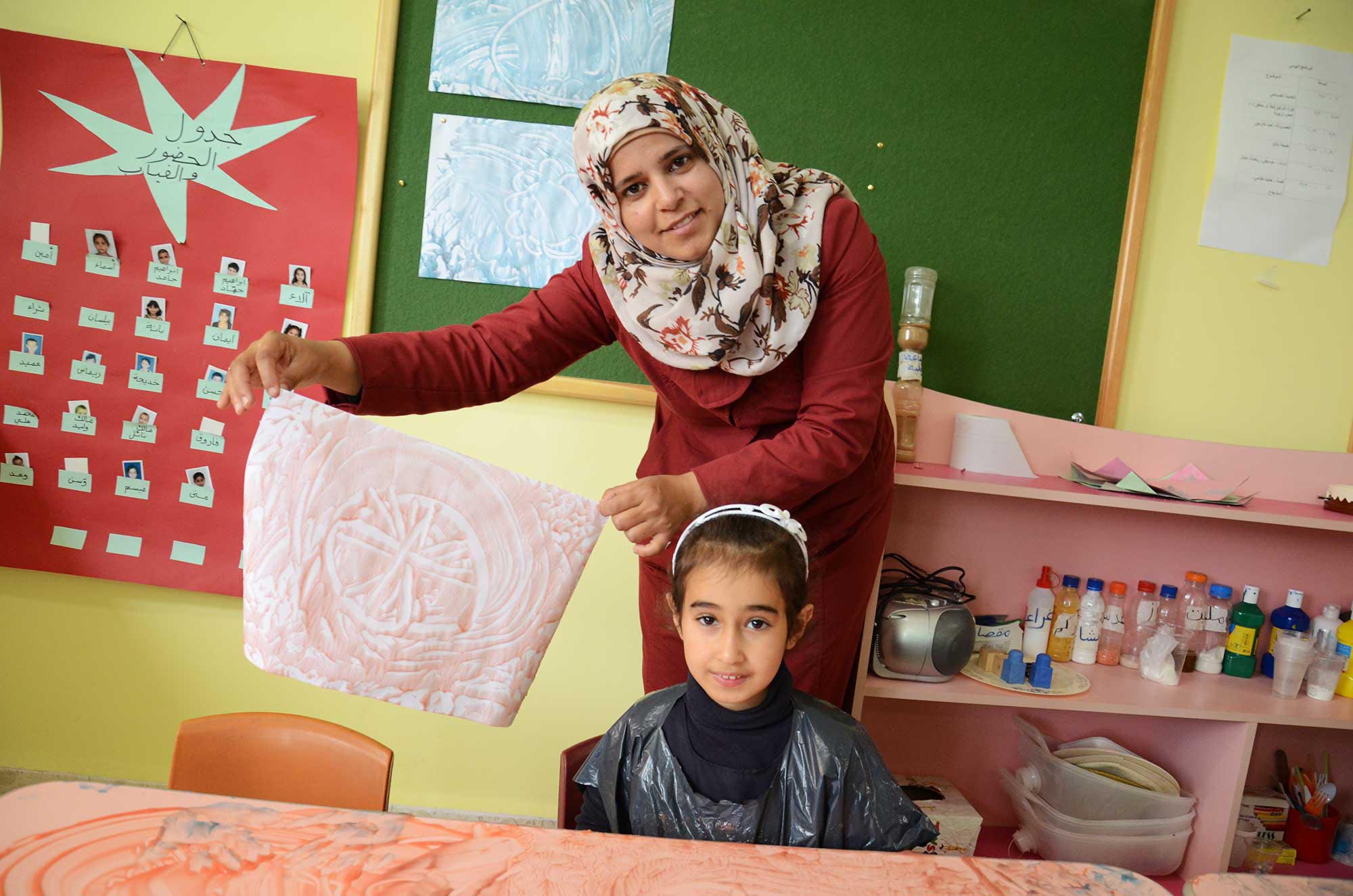
A Breakthrough in Interactive Learning

It’s all about giving them a right start in life and giving them the emotional and physical space for their personalities to develop.
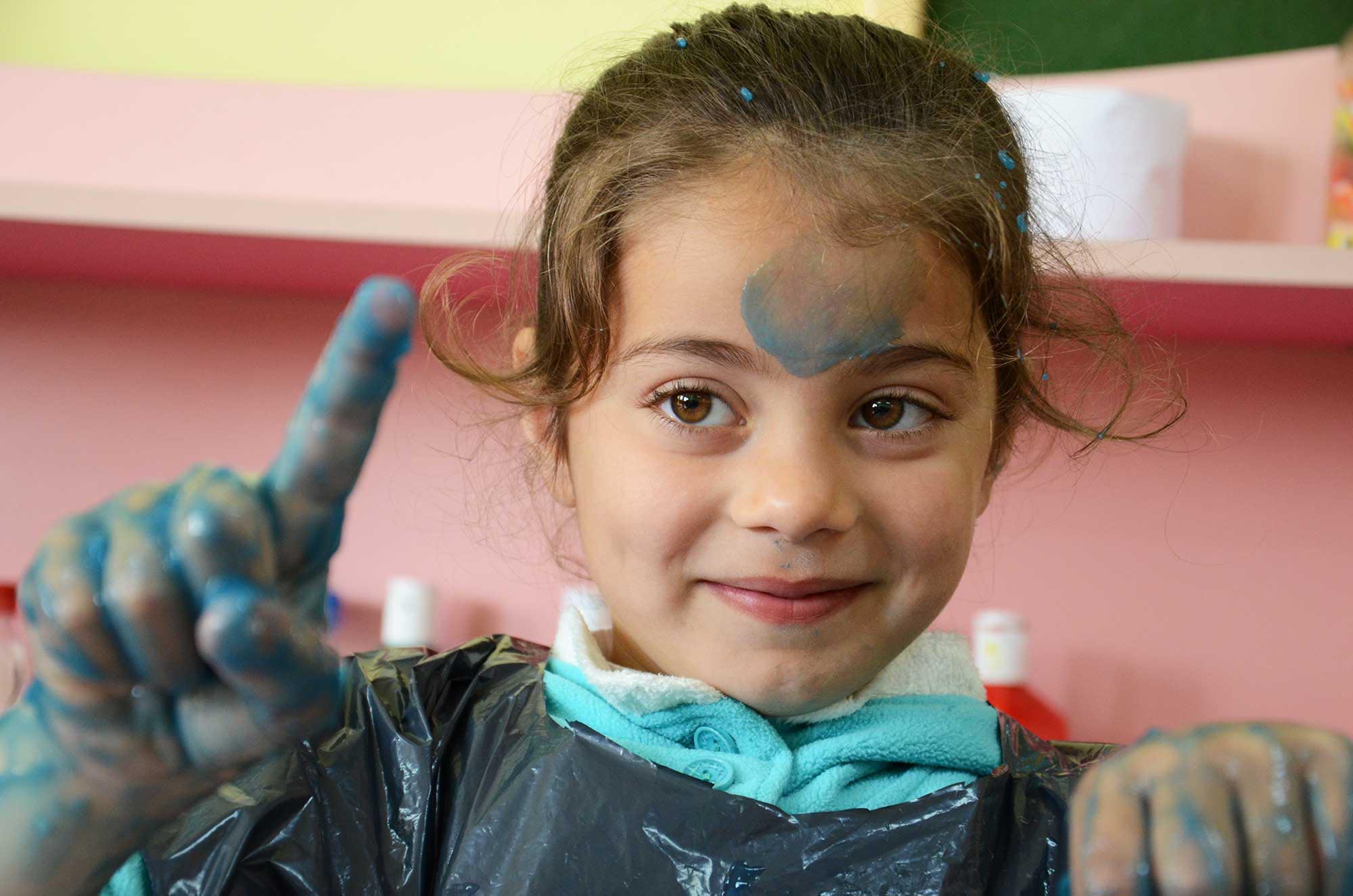
As she continued the training program with Anera, she started to believe that everything would be okay. However, Wijdan says the real breakthrough came when she changed her perception of what learning is all about.
“I couldn’t imagine a classroom without desks facing a big blackboard. These were fundamental elements of a classroom to me from preschool all the way to university,” she explains. “The blackboard was always there. It had to be!”
Now, she realizes the blackboard can be replaced by games and activities. “When a fun game can teach kids letters, words and spelling, why would I need a blackboard?”
Wijdan was skeptical when Sulaima trained the group of teachers on modern teaching methods and techniques and classroom arrangement. But, when Wijdan put it all into practice, she was convinced it was the best approach.
“We don’t have lessons, but rather a daily program. We sit together on the floor every morning to chat and plan our day. We have various components to our activities like nature, art, games, blocks, drama and storytelling. At the end of each day we have a wrap-up session where the children recall the day’s events and get to express themselves,” says Wijdan with a note of pride in her voice.
Like a large majority of teachers and parents, she used to believe that preschool revolved around reading and writing, and a lot of homework. Today, an enlightened Wijdan understands how the process of learning is always ongoing and takes time.
“With all honesty, I’ve recently discovered that our traditional way of teaching in Palestine is quite rigid and even crippling. Teachers cramp the children’s personalities and imagination, instead of empowering their creativity.”
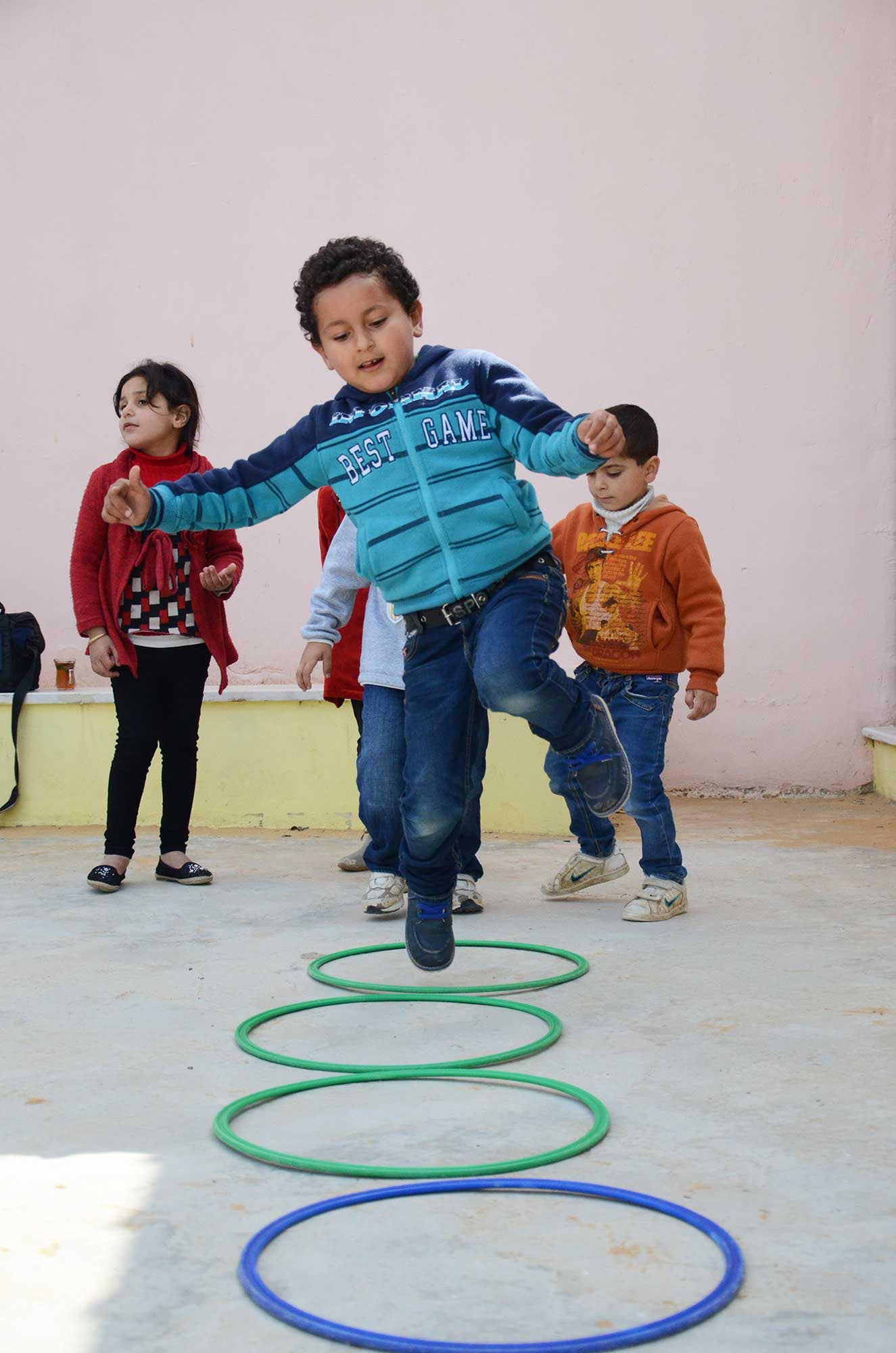
“It’s all about giving them a right start in life and giving them the emotional and physical space for their personalities to develop. It’s been over two years, and now I dread the possibility of working in more advanced grades. The preschool has become my home.”
One of Wijdan’s early memories was struggling to learn a sentence by heart. She recalls her preschool as being no different than primary or elementary school. They were both a “dreary” classroom with no games or toys.
“When I look at the children I teach in this very rich and stimulating environment, I see a promising future ahead of them,” contemplates Wijdan. “I truly believe they will grow up to become better adults. I wish I could go back in time and experience preschool in the same way.”
